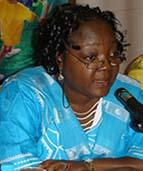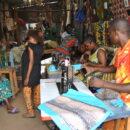Mauritania: Nouakchott Protests likely to increase – By Exclusive Analysis Ltd

 On 2 May 2012, security forces used stun grenades and tear gas to disperse a sit-in numbering in the thousands in Mauritania’s capital Nouakchott. Issues such as unemployment, drought and corruption regarding the sale of land to senior military officers and well-connected businessmen, are driving regular protests and have led 12 opposition parties to form the Democratic Opposition Council (COD), which calls for President Mohammad Ould Abdel Aziz to step down. The group has called for a ‘million man’ march in Nouakchott on 3 May.
On 2 May 2012, security forces used stun grenades and tear gas to disperse a sit-in numbering in the thousands in Mauritania’s capital Nouakchott. Issues such as unemployment, drought and corruption regarding the sale of land to senior military officers and well-connected businessmen, are driving regular protests and have led 12 opposition parties to form the Democratic Opposition Council (COD), which calls for President Mohammad Ould Abdel Aziz to step down. The group has called for a ‘million man’ march in Nouakchott on 3 May.
Demonstrations near the presidential palace and government buildings in Nouakchott, as well as in Lekreyii, Aleg and the port city of Noudhibou, are likely to increase in the coming months, with the probable use of force by security forces against protesters likely only to exacerbate matters. The likely escalation of protests in Aleg and other parts of the Inchiri region, as well as the southern parts, would raise the risk of disruption to mining projects and land cargo from mining concessions.
We assess that the existence of deep ethnic and political divisions within opposition movements mitigate the risk that protests will grow into a popular uprising that imperils political stability. However, if civil unrest were to become overwhelming, the most likely outcome would be a military coup that replaced President Aziz with a candidate more favourable to the opposition. Although security forces have thus far proved loyal to President Aziz, the military has been heavily involved in every Mauritanian government and has replaced at least eight governments by instigating coups. A future intervention would be unlikely to threaten existing energy and mining interests.
Exclusive Analysis Ltd is a specialist intelligence company that forecasts commercially relevant political and violent risks worldwide.






